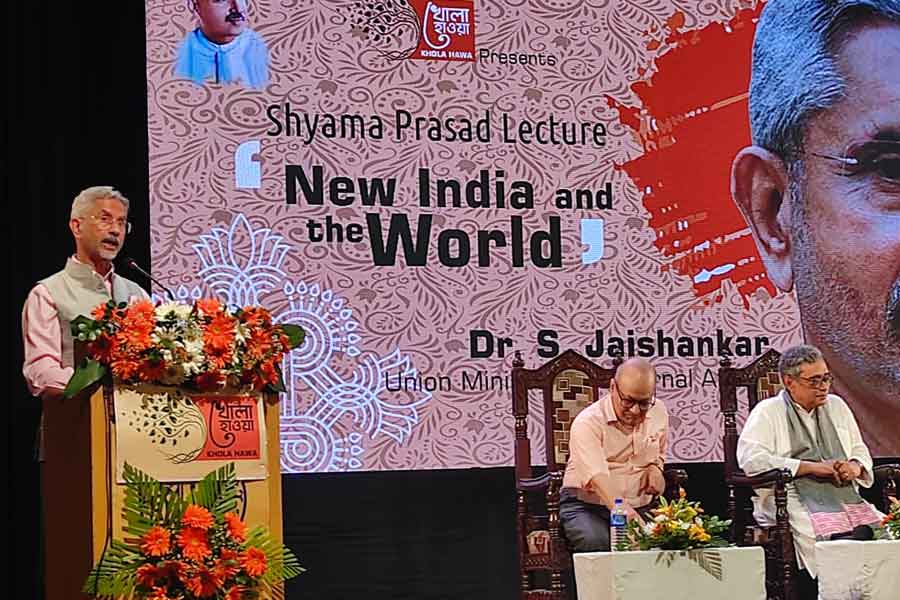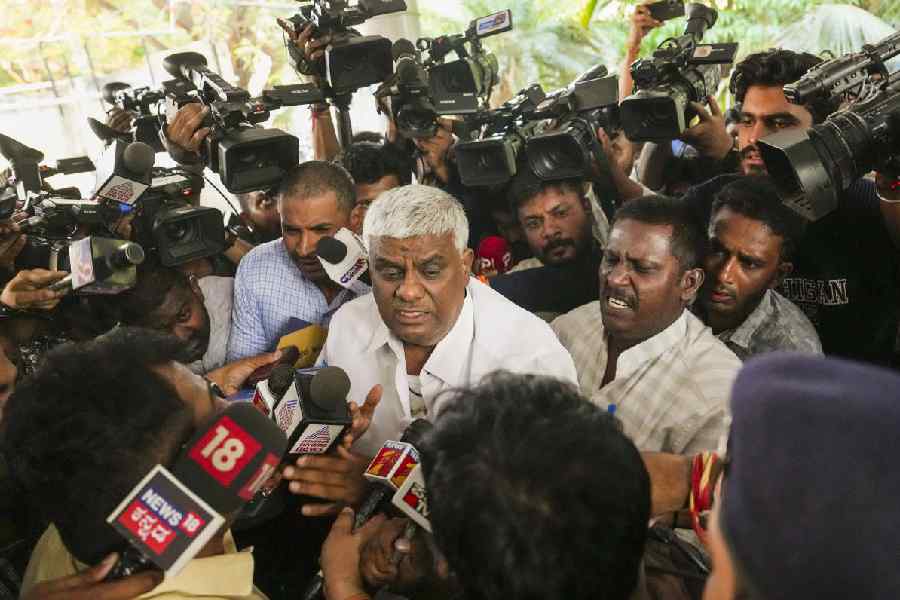The recently-concluded state visit of Prime Minister Narendra Modi to the United States cemented a “partnership (between two nations) which has come of age”, said S Jaishankar. But the external affairs minister differentiated this diplomatic endeavour with the US from all previous prime ministerial visits of Independent India as making a qualitative leap over an existing “relationship” to forging a “partnership based on collaboration and driven by mutual interests and respect”.
Despite India’s “rock-steady relationship” with Russia which the EAM called “the steadiest of all bilateral relations despite enormous global turbulence in the past 75 years”, Jaishankar insisted on the need for India to “not get tied down to exclusive relationships”.
“Because we have a tradition of strong ties with Russia, that should not become a burden or an obstacle to an equally strong relationship with the United States. Or, those tours should not stop us from, let us say, Japan or Europe or whoever else we are looking at. So I do not see our relationships as a kind of a zero sum game. On the contrary, my effort is to see that we advance on multiple major relationships all at the same time in the best possible fashion,” Jaishankar said.
The EAM also called out China’s “violation of dual agreements of 1993 and 1996 and moving its forces into the Line of Actual Control in violation of those agreements” and maintained that China “needs to stop trying to unilaterally change the status quo and come to the understanding that relationships between major countries work only when they are based on mutual interests, sensibilities and mutual respect”.
Speaking at an interactive session organized by Khola Hawa, an organization led by BJP MP Swapan Dasgupta, on Friday Jaishankar responded to a question on whether India can maintain a working relationship with China by stating: “In diplomacy, you never give up. But, ultimately, it takes two hands to clap. And China too must have that belief in that working relationship if that is to happen.”
Answering a question from The Telegraph Online on how he differentiated PM Modi’s recent visit to the US with those made by the previous Indian Prime Ministers, Jaishankar singled out visits of Rajiv Gandhi in 1985, Manmohan Singh in 2009 and Narendra Modi’s trip in 2014 as basis for comparison. “I can tell you for sure this visit was on a completely different level,” the EAM said.
Besides focusing on Modi becoming the only Prime Minister of the country to address the US joint session of Congress twice and the attention he received from America’s administration top brass for the entire duration of his visit, Jaishankar particularly focussed on the business takeaways for India.
“One constituency (in the US) which has historically been very sceptical about India was business. In all the (previous) visits, business has always held back in America where India was concerned. This time we had from Tim Cook to Elon Musk to Satya Nadella to Sundar Pichai to the Boeing and GE guys… if you look at the levels and seriousness of the business interactions… And not just the interactions, look at the outcomes,” Jaishankar pointed out.
Referring to the agreements signed in various fields, he added: “These are done deals with funds committed, locations identified and ready to go which you will see coming up in the next few months.”
Explaining India’s need to foster multiple global relationships, Jaishankar said: “The world is moving in a direction where there will be multiple centres of power and the range of interests would broaden. We need to keep many relationships in play and advance on all fronts. We need to secure our neighbourhood and also move beyond our extended neighbourhood… the Gulf, south-east Asia, Central Asia and beyond. Most of all, over the next 25 years, we have to lay the foundation of what would be a global footprint of India.”
“So how well you navigate a much more complex world with many more variables moving in multiple directions is how you ensure that the rise of India takes place faster,” the EAM summed up while mapping out India’s diplomatic trajectory.










